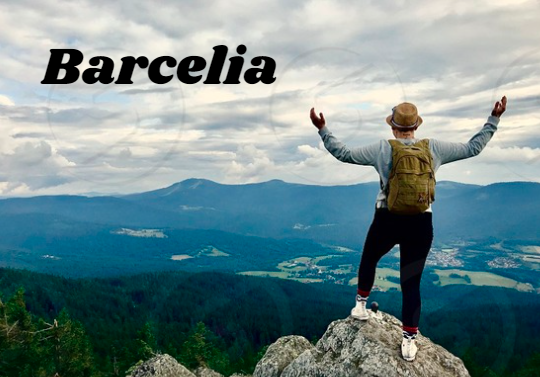Introduction
Nestled on the eastern shores of the Mediterranean Sea, Barcelia stands as a captivating destination known for its rich history, vibrant culture, and unique geographical attributes.
This comprehensive guide aims to delve into the multifaceted aspects of Barcelia, offering insights and analyses that go beyond surface-level information.
From its climate and historical significance to its cultural vibrancy and future prospects, this article provides a thorough exploration of Barcelia, optimized for the keyword “Barcelia.”
Geographical Overview of Barcelia
Barcelia’s location on the eastern Mediterranean coast provides it with a strategic advantage, blending natural beauty with historical significance. The city’s positioning on the Mediterranean Sea has historically made it a vital port and cultural crossroads.
Physical Features
Barcelia boasts a diverse landscape featuring coastal plains, rolling hills, and rugged terrains. Its proximity to the Mediterranean influences its topography, characterized by scenic beaches, fertile lands, and picturesque coastal cliffs.
Urban Layout
The urban layout of Barcelia reflects its historical evolution, with ancient structures standing alongside modern developments. This fusion of old and new creates a unique cityscape that attracts both historians and tourists alike.
Climate and Weather Patterns
Barcelia enjoys a Mediterranean climate, known for its distinct seasonal variations. Understanding its climate is crucial for appreciating the city’s lifestyle and planning travel activities.
Summer: Hot and Dry
Summers in Barcelia are typically hot and dry, with temperatures often reaching high levels. The absence of rainfall during this period makes it ideal for outdoor activities and exploring the city’s many attractions.
Winter: Warm and Wet
Winter temperatures in Barcelia remain relatively mild compared to other Mediterranean regions. However, the season brings increased rainfall, contributing to the region’s lush vegetation and maintaining its vibrant green spaces.
Seasonal Variations and Impacts
The climate influences daily life in Barcelia, from seasonal festivals to agricultural practices. The warm winters support various outdoor events, while the hot, dry summers are perfect for beachgoers and tourists.
Historical Significance
Barcelia’s historical tapestry is woven with rich narratives that span centuries. Understanding its past provides valuable context for its current cultural and economic landscape.
Ancient Origins
Barcelia’s origins trace back to ancient civilizations that inhabited the Mediterranean region. Archaeological findings reveal a city that was once a bustling center of trade and culture, with influences from Phoenician, Greek, and Roman periods.
Medieval and Ottoman Eras
Throughout the medieval period, Barcelia experienced significant changes under Byzantine and Ottoman rule. The city’s architecture and culture reflect these diverse influences, with historic buildings and monuments preserving its multifaceted history.
Modern Era
In the modern era, Barcelia has evolved into a vibrant metropolis, embracing both its historical heritage and contemporary advancements. This blend of old and new is evident in its cultural practices, architecture, and economic activities.
Cultural Landscape
Barcelia’s cultural landscape is a testament to its rich history and diverse influences. The city’s vibrant cultural scene is characterized by traditional practices, modern innovations, and a dynamic artistic environment.
Festivals and Traditions
Barcelia hosts a variety of festivals and traditional events throughout the year. These celebrations reflect its cultural diversity and historical roots, offering residents and visitors a glimpse into its rich heritage.
Culinary Scene
The culinary scene in Barcelia is renowned for its Mediterranean flavors and traditional dishes. From fresh seafood to local specialties, the city’s gastronomy is a delightful exploration of regional ingredients and culinary techniques.
Arts and Entertainment
Barcelia’s arts and entertainment scene is thriving, with numerous galleries, theaters, and music venues showcasing local and international talent. The city’s cultural institutions play a pivotal role in nurturing artistic expression and cultural exchange.
Economic Developments
Barcelia’s economic landscape is shaped by its strategic location, historical significance, and modern advancements. The city’s economy is diverse, encompassing various sectors and industries.
Tourism
Tourism plays a crucial role in Barcelia’s economy, driven by its historical sites, natural beauty, and cultural attractions. The city’s well-developed infrastructure supports a thriving tourism industry, attracting visitors from around the world.
Trade and Commerce
Barcelia’s historical role as a trade hub continues to influence its economic activities. The city’s ports and trade routes facilitate commerce, contributing to its economic growth and global connections.
Technological Advancements
In recent years, Barcelia has embraced technological advancements, fostering innovation and development in various sectors. The city’s investment in technology and infrastructure supports its economic expansion and global competitiveness.
Tourism and Attractions
Barcelia offers a wealth of attractions and activities for visitors, ranging from historical sites to natural wonders. The city’s diverse offerings cater to various interests, making it a popular destination for tourists.
Historical Sites
Exploring Barcelia’s historical sites provides insight into its rich past. Key landmarks include ancient ruins, medieval fortresses, and architectural marvels that reflect the city’s historical evolution.
Natural Attractions
The city’s natural attractions, including its picturesque beaches and scenic landscapes, offer opportunities for outdoor activities and relaxation. Barcelia’s natural beauty enhances its appeal as a tourist destination.
Modern Attractions
In addition to its historical and natural attractions, Barcelia boasts modern amenities and entertainment options. Shopping districts, cultural venues, and recreational facilities contribute to a vibrant tourism experience.
Future Prospects
Barcelia’s future is shaped by its historical legacy, cultural richness, and economic developments. As the city continues to evolve, it faces opportunities and challenges that will influence its trajectory.
Urban Development
Ongoing urban development projects aim to enhance Barcelia’s infrastructure and livability. Sustainable development practices and modernization efforts are key to the city’s growth and future prosperity.
Cultural Preservation
Preserving Barcelia’s cultural heritage while embracing modernization is a critical aspect of its future. Balancing historical preservation with contemporary advancements will ensure the city’s unique identity is maintained.
Economic Growth
Continued investment in tourism, trade, and technology will drive Barcelia’s economic growth. Strategic planning and innovation are essential for sustaining its economic momentum and global presence.
FAQs
Q1: What is the best time to visit Barcelia? A1: The best time to visit Barcelia is during the spring or fall when the weather is mild and pleasant. Summer can be quite hot and dry, while winter brings cooler temperatures and rainfall.
Q2: What are the must-see attractions in Barcelia? A2: Must-see attractions in Barcelia include its ancient ruins, historical fortresses, beautiful beaches, and vibrant cultural venues. The city’s diverse offerings cater to various interests.
Q3: How has Barcelia’s economy evolved in recent years? A3: Barcelia’s economy has evolved with a focus on tourism, trade, and technological advancements. The city has embraced modernization while maintaining its historical significance.
Q4: What are the cultural highlights of Barcelia? A4: Cultural highlights of Barcelia include its traditional festivals, diverse culinary scene, and thriving arts and entertainment sector. The city’s cultural landscape reflects its rich history and vibrant present.
Q5: How is Barcelia addressing urban development and sustainability? A5: Barcelia is addressing urban development through modernization and sustainable practices. Ongoing projects aim to enhance infrastructure while preserving the city’s cultural and historical heritage.
Conclusion
Barcelia, with its rich history, vibrant culture, and strategic location, stands as a remarkable Mediterranean destination. This comprehensive guide has explored the city’s geographical features, climate, historical significance, cultural landscape, economic developments, and future prospects.
By delving into these aspects, we gain a deeper understanding of Barcelia’s unique characteristics and its role in the broader Mediterranean context. As Barcelia continues to evolve, its blend of tradition and modernity will undoubtedly shape its future, making it a city worth exploring and appreciating.



